“Now, since the present subject is taken up, not for the sake of contemplation, as are others—for we are conducting an examination, not so that we may know what virtue is, but so that we may become good, since otherwise there would be no benefit from it—it is necessary to examine matters pertaining to actions, that is, how one ought to perform them. For these actions have authoritative control over what sorts of characteristics come into being, just as we have said. …
This, then, is the first thing that must be contemplated. Such things [as the virtues] are naturally destroyed through deficiency and excess, just as we see in the case of strength and health. …
Excessive as well as deficient gymnastic exercises destroy strength, and, similarly, both drink and food destroy health as they increase or decrease in quantity, whereas the proportionate amounts create, increase, and preserve health. So it is too with moderation, courage, and the other virtues: he who avoids and fears all things and endures nothing becomes a coward, and he who generally fears nothing but advances toward all things becomes reckless. Similarly, he who enjoys every pleasure and abstains from none becomes licentious; but he who avoids every pleasure, as the boorish do, is a sort of insensible person. Moderation and courage are indeed destroyed by excess and deficiency, but they are preserved by the mean.
Strength comes into being as a result of taking much nourishment and enduring many exertions, and he who is strong would especially be able to do just these things. So too in the case of the virtues, for as a result of abstaining from pleasures, we become moderate; and by so becoming, we are especially able to abstain from them. Similar is the case of courage as well: by being habituated to disdain frightening things and to endure them, we become courageous, and by so becoming, we will be especially able to endure frightening things.”
(Nicomachean Ethics, 2.2)


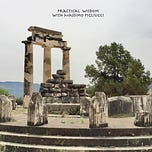






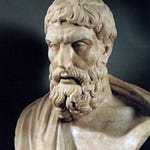
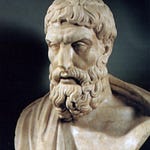
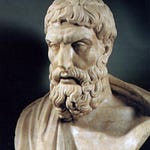
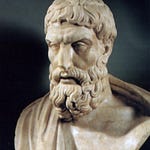
Share this post